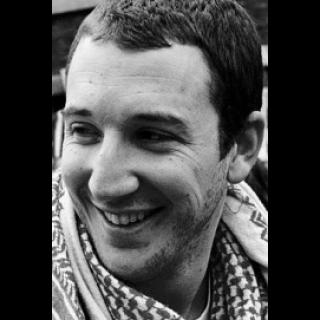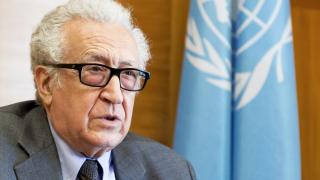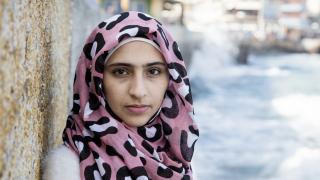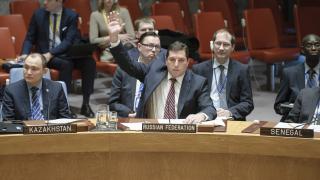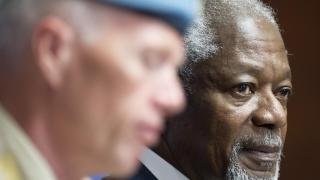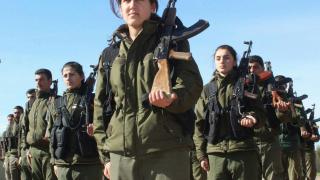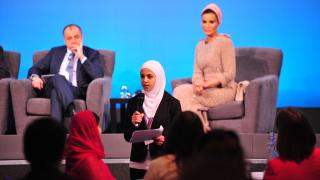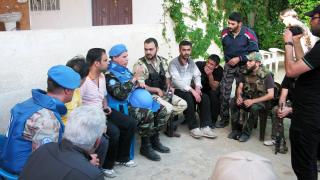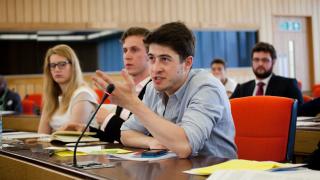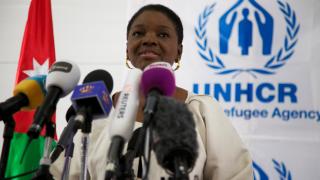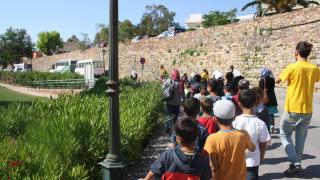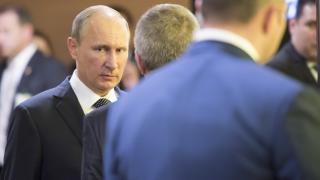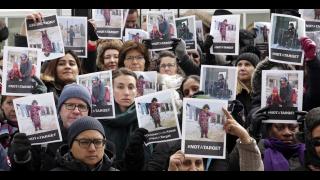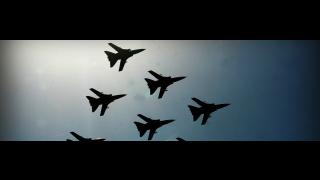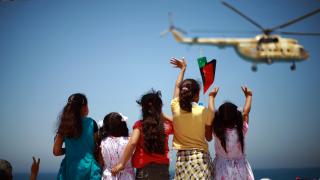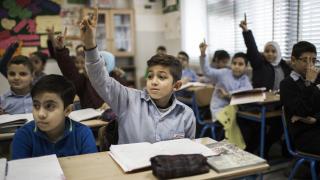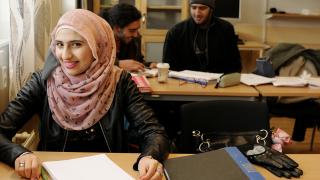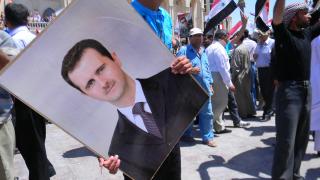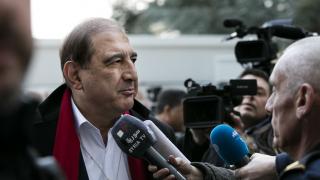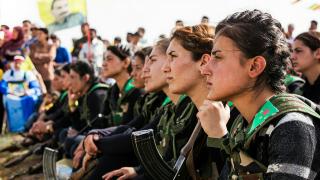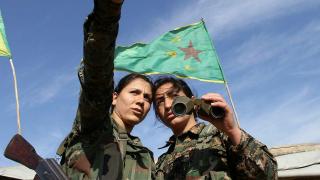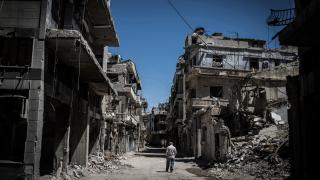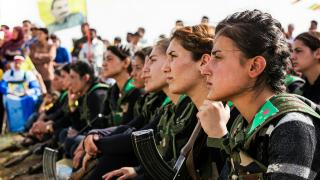
After more than six years since the beginning of the uprising, the situation in Syria is catastrophic in humanitarian and political terms. The opposition in exile is divided, lacking legitimacy within the country and instrumentalised by foreign powers, while Islamic fundamentalists dominate the military opposition within Syria.
These divisions are exemplified by the two different delegations negotiating in Astana, Kazakhstan, and in Geneva, Switzerland. The opposition delegation in Astana was composed of various armed opposition forces, headed by the Jaysh al-Islam faction’s political representative, Mohammad Alloush.
Meanwhile in Geneva, the main opposition delegation is the High Negotiations Committee (HNC) – an umbrella group, gathering members of the National Coalition for Syrian Revolutionary and Opposition Forces; the National Coordination Body for Democratic Change; members of the Kurdish National Council (KNC); independent groups and personalities; and various opposition forces from the Free Syrian Army (FSA) network, Islamic forces linked to the Muslim Brotherhood and Jaysh al-Islam. Other opposition groups also present in Geneva include the "Cairo" platform, composed of small secular groups of various ideologies. Other opposition groups and coalitions were either not invited or decided to boycott the fourth Geneva peace talks.
The democratic and civilian components of the popular movement (for example, human rights defenders, members of the Local Coordination Committees, youth groups and women more generally) are completely side-lined in both these negotiations, and with them, the initial objectives for the uprising: democracy, social justice and equality. There have been no clear outcomes from the negotiations in Kazakhstan, despite a public relations coup by the three powers sponsoring the talks: Russia, Iran and Turkey – except for the reassertion of their influence in Syria and on various actors in the country.
Most of the non-jihadist and Salafist armed opposition groups – in other words, FSA networks – have been increasingly marginalised in the military struggle against the regime for various reasons: repression by the regime’s forces and its allies (Russia, Iran and Hezbollah); the rise of Islamic Fundamentalist forces; lack of organised assistance by Western powers; and instrumentalisation and division nurtured by foreign powers (Turkey and the Gulf states).
More recently, however, FSA forces have been weakened by pressure from their regional backers, demanding them to de-escalate the fight against Assad’s forces and concentrate on other enemies, especially ISIL and the Kurdish Democratic Union Party (PYD). Jordan and Turkey, for example, increasingly used local FSA and armed opposition factions, composed of thousands of fighters, to protect their borders. This has participated in the FSA’s loss of local legitimacy to the benefit of the regime, and Salafist and jihadist forces.
In the Kurdish-majority areas of Syria in the north, the Kurdish PYD is still politically and militarily dominant. It governs the areas known as “Rojava” while repressing other Syrian-Kurdish groups gathered beneath the umbrella of the Kurdish National Council (KNC). The PYD has been excluded from the peace talks in Geneva, once again, because the Turkish Government adamantly refuses to allow any role for groups linked to the Kurdistan Workers' Party (PKK), which Ankara considers a terrorist group. The presence of the KNC within the HNC’s delegation is however strongly contested by many Syrian Kurds, and KNC has increasingly lost legitimacy and influence within Syria.
There is consensus among all Kurdish political parties to establish – in a future Syria without Assad – a form of decentralisation, while maintaining the full integrity of Syrian territory within a federal system. The way to reach it is, however, contested. PYD has pursued a policy of strengthening its political influence, through its armed forces, to further its control over Kurdish-majority areas, and to link the three Rojava cantons geographically but without any cooperation from Syrian Arab opposition forces – and sometimes even against them. On the other side, the KNC has argued that a federalist system has to be established following discussions with the Syrian Arab opposition, the majority of which views federalism as a step toward separatism and division.
The renewed Geneva talks will probably be unable to put an end to the war for various reasons in the short term. There is, however, a kind of consensus among all international and regional powers regarding the future of Syria, despite some differences on how to reach it: to put an end to the war and ignore the democratic aspirations initiated with the uprising; stabilise the regime in Damascus and keep at its head Bashar al-Assad for the short-to-medium term; oppose Kurdish autonomy and try to militarily defeat jihadist groups such as ISIL and Jabhat al-Nusra.
Photo: Kurdish YPG fighters. Credit: Kurdishstruggle/CC

